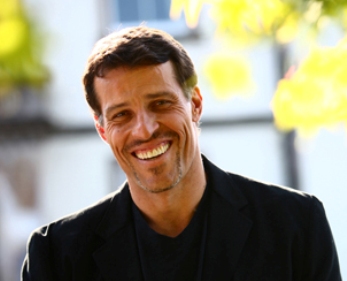You’re sitting in the front row of a sold out conference for self-help guru Tony Robbins, and here it comes, Ba-Bam!: “Positive thinking will let you do everything better than negative thinking will.”

According to publisher Simon and Schuster, minister and author Norman Vincent Peale’s best selling book, The Power of Positive Thinking stayed on the New York Times bestseller list for a staggering 186 consecutive weeks. During holiday times, Peale advocated that people “make a dilberate effot to speak hopefully about everything.”
Now comes, (are you sitting down?), The Power of Negative Thinking.
Oliver Burkeman, his web site says, writes “for (England’s) The Guardian based in Booklyn, New York. His latest book,The Antidote: Happiness for People Who Can’t Stand Positive Thinking, explores the upsides of negativity, uncertainty, failure and imperfection.”
In a Wall Street Journal (Dec. 8) essay, Burkeman extols the virtues of the “negative path to happiness.”
“One pioneer of the ‘negative path’ was the New York psychotherapist Albert Ellis, who died in 2007. He rediscovered a key insight of the Stoic philosophers of ancient Greece and Rome: that sometimes the best way to address an uncertain future is to focus not on the best-case scenario but on the worst.”
Burkeman points to the ancient Stoic philosopher Seneca. “If you feared losing your wealth, he once advised, ‘set aside a certain number of days, during which you shall be content with the scantiest and cheapest fare, with coarse and rough dress, saying to yourself the while: ‘Is this the condition that I feared?’
“Studies suggest,” Burkeman writes, “that peppy affirmations designed to lift the user’s mood through repetition and visualizing future success often achieve the opposite of their intended effect.”
Of course, Burkeman doesn’t reference these studies in the essay, (maybe they’re in the book). But in looking through the philosopher’s and psychologist’s lens, he does make an interesting point.
“Just thinking in sober detail about worst-case scenarios,” Burkeman says, “a technique the Stoics called ‘the premeditation of evils’—can help to sap the future of its anxiety-producing power. The psychologist Julie Norem estimates that about one-third of Americans instinctively use this strategy, which she terms ‘defensive pessimism.’ Positive thinking, by contrast, is the effort to convince yourself that things will turn out fine, which can reinforce the belief that it would be absolutely terrible if they didn’t.”
So, what happens to, “Positive thinking will let you do everything better than negative thinking will”?
Well, actually, Tony Robbins never said that. Author and motivational speaker Zig Ziglar said it.
Robbins is more Stoic than both he and Burkeman might be aware of.
“The secret of success,” Robbins teaches, “is learning how to use pain and pleasure instead of having pain and pleasure use you. If you do that, you’re in control of your life. If you don’t, life controls you.”
Robbins believs and teaches that “It is not what we get, but who we become, what we contribute… that gives meaning to our lives.”
Which is a variation on another English writer, (and ethical philosopher), John Ruskin, who once wrote: “The highest reward for a person’s toil is not what they get for it, but what they become by it.”
Comments










